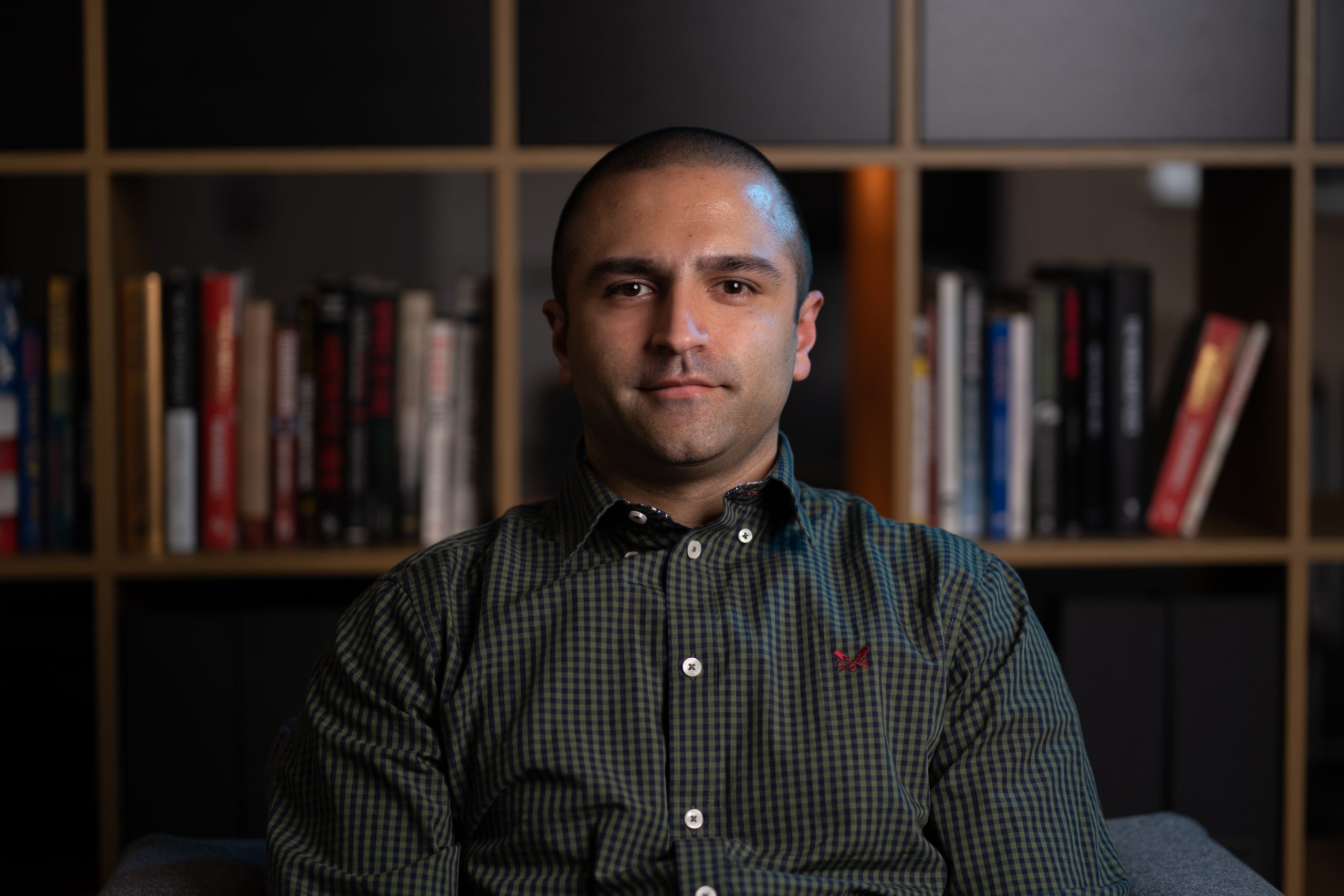Mutiny in Mali: What happened in Bamako?
In the early morning hours of the 18th August 2020, gunfire was heard at Kati’s Soundiata military camp in Mali. In our latest blog post we analyse the mutiny that followed.
What happened?
Soldiers at Kati’s Soundiata military camp, 15km north of Bamako, began exchanging fire with a group of armed men in pick-up trucks after they began firing shots in the air, and the soldiers based at the camp believed they were under attack. The mutineers then began distributing weapons from the armoury to soldiers in the camp.
About 40 armoured vehicles then left Kati towards Kolouba, Bamako. Several government officials including the Minister of Economy and Finance and President of the National Assembly were also held by the mutineers.
COMMENT: The Kati military camp has been the scene of protests as well as at the centre of coup d’etat. However, the detention of government officials was an early indication that this was more than just a mutiny and that a possible coup was underway. COMMENT ENDS
At approximately 1600hrs, it was announced that President Ibrahim Boubacar Keita (IBK) and Prime Minister Boubou Cissé were ‘arrested’ at gunpoint by the mutineers and taken to Kati military camp. President IBK later announced his resignation and the dissolution of the national assembly and the government.
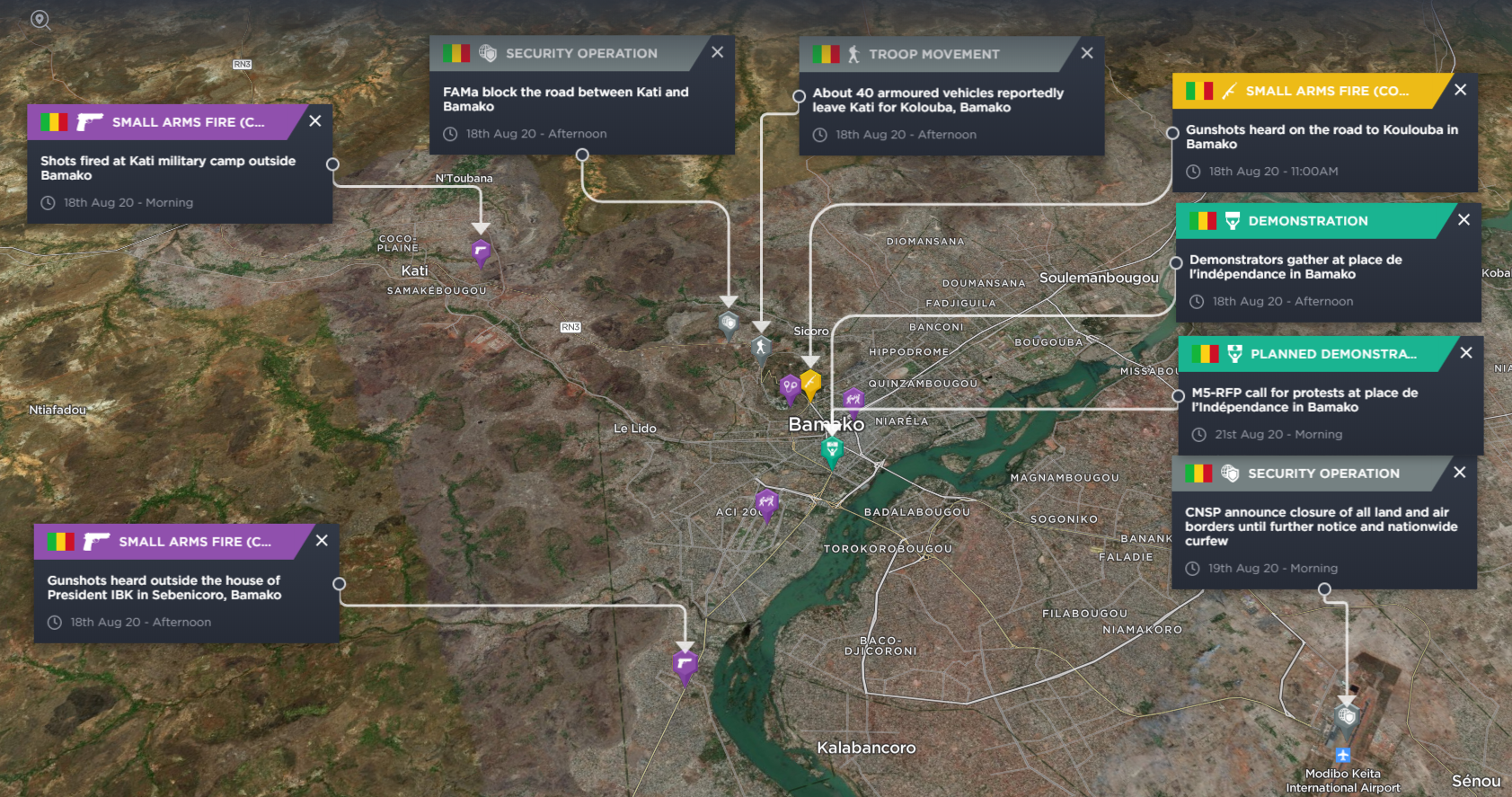
CNSP
The mutineers have identified themselves as the National Committee for the Salvation of the People (CNSP). The spokesperson for the mutineers called on “civil society and political social movements to join them in creating “the best conditions for a civil political transition leading to credible general elections for the exercise of democracy through a roadmap that will lay the foundations for a new Mali”. The group accused the IBK regime of misappropriation of public funds and described how the country is “sinking into chaos, anarchy and insecurity mostly due to the fault of the people who are in charge of its destiny.” The CNSP added that all international agreements will be respected and that Barkhane and MINUSMA will “remain partners for the restoration of stability”.
Leaders of the mutiny include Colonel Modibo Koné, Colonel Assimi Goïta, Colonel Major Ismaël Wagué, Colonel Malick Diaw and Colonel Sadio Camara. The leaders of the coup are senior officers unlike those of 2012 where a majority were NCOs and men of the rank.
The CNSP has announced the closure of all land and air borders until further notice and a nationwide curfew from 2100hrs to 0500hrs.
Pre-existing Tensions
Political tension and anti-government sentiment have been escalating since June 2020, when the M5-RFP opposition coalition was formed to demand the resignation of President IBK. Led by, among other influential figures, the influential Imam Dicko, the group has organised anti-government protests as part of a civil disobedience campaign. The movement was borne out of widespread criticism at President IBK’s failure to tackle corruption, improve the economy and contain the jihadist insurgency and followed disputed parliamentary elections that saw President IBK’s party become the largest bloc. Figure 2 and 3 shows just how widespread M5-RFP protests in Mali and Bamako have been. ECOWAS, who have condemned the coup, have been part of unsuccessful efforts to defuse tension between the M5-RFP and President IBK in recent weeks.
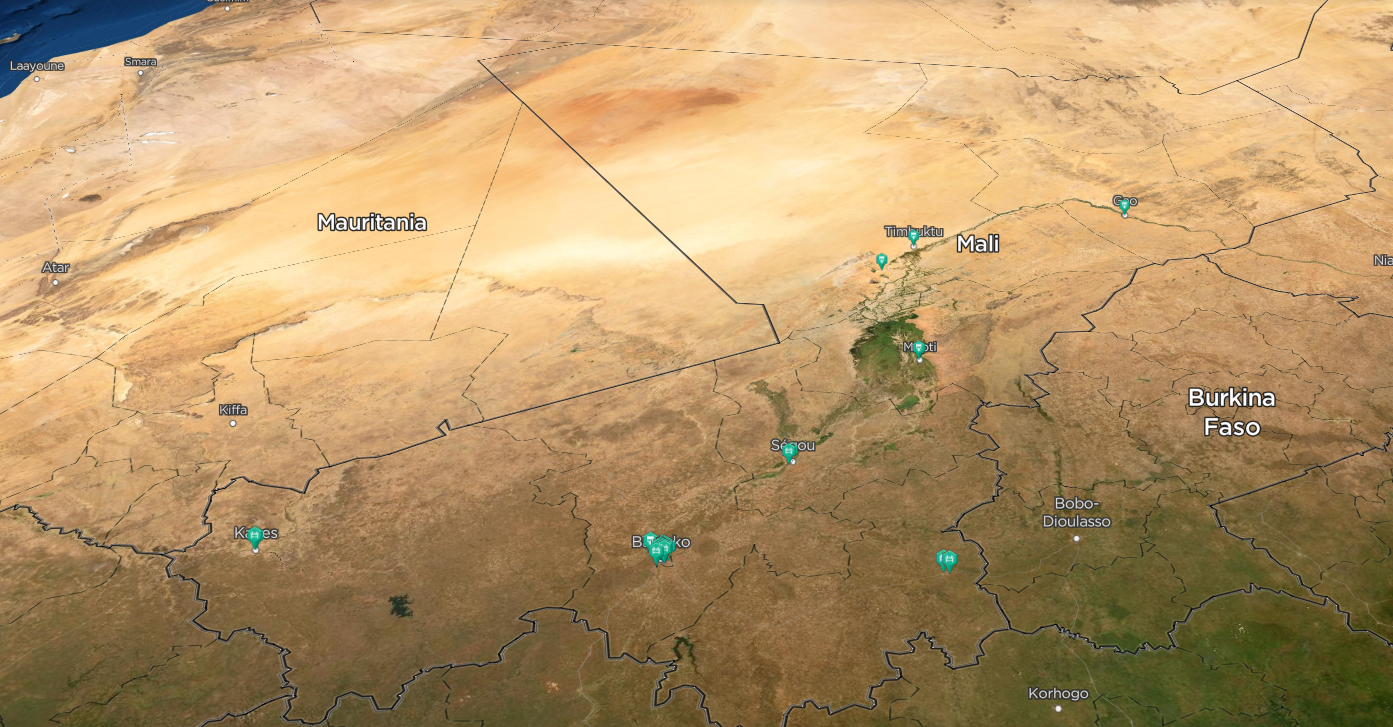
It’s unclear if the M5-RFP movement leaders knew of the planned mutiny. Protesters gathered at place de l’Independence in Bamako during the mutiny. An M5-RFP protest was planned for 21, 22 and 23 August 2020 in Bamako. However, the M5-RFP released a statement on 19 August 2020 welcoming the resignation of President IBK and the dissolution of the government and National Assembly. They emphasised a commitment to democracy and called for the international community to support the coup. They announced that they would work the CNSP to achieve the peaceful transferral of power via elections. A spokesperson for Imam Dicko said he would withdraw from politics.
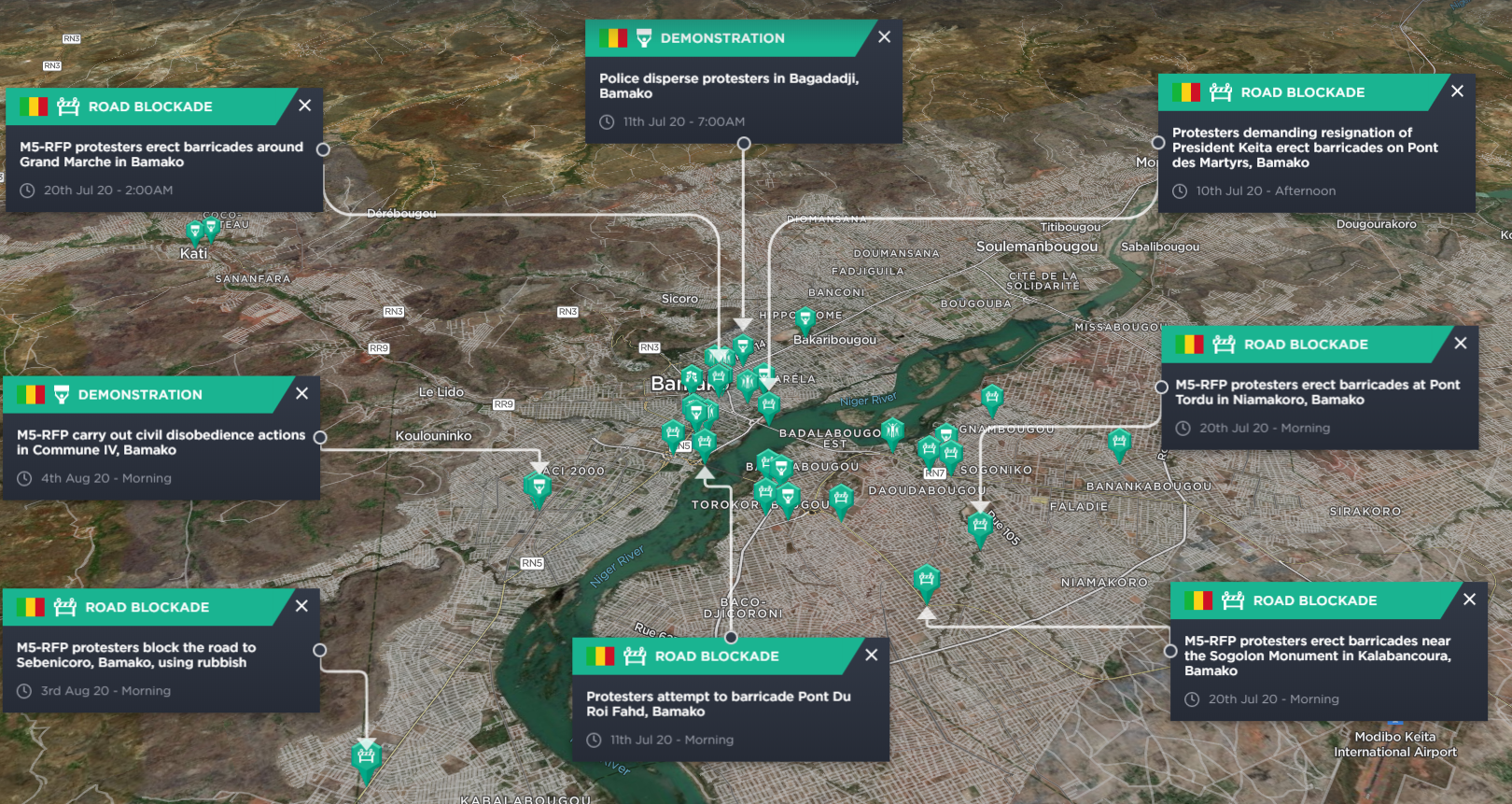
Reaction from the International community
ECOWAS condemned the mutiny and announced the closure of land and air borders with Mali. ECOWAS added that it was also suspending Mali from its internal decision-making bodies. The French Foreign Minister also condemned the mutiny. Similarly, United Nations Secretary General António Guterres demanded the release of leaders and the “immediate restoration of constitutional order”. The US Secretary of State also demanded the release of detained leaders and President IBK.
COMMENT: There have been protests against MINUSMA and French forces in the past 12 months. Together with existing anger with governance under the President IBK’s regime, there could be renewed protests (see Figure 4) targeting, for example, French and UN interests who may be seen as being a part of the President IBK camp. COMMENT ENDS
Frustration with the failure to contain the jihadist insurgency has also led to protests in the last 12 months across Mali to demand the departure of foreign forces including French Barkhane forces and MINUSMA peacekeepers.
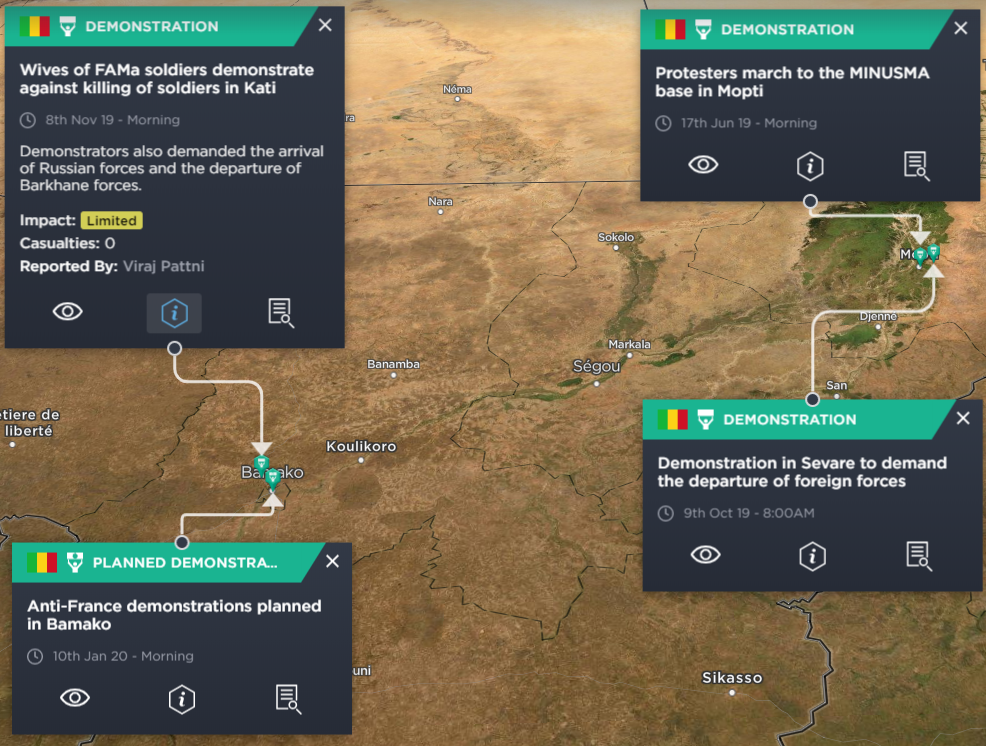
If you’d like to take a closer look at our reporting, and how we help security leaders better protect their people and assets in situations such as this, speak to a member of the team today.
